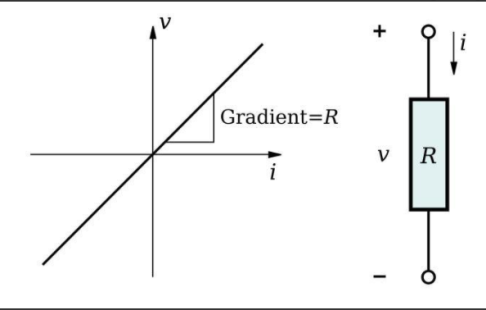Question
Question: In a wire of length 4m and diameter 6mm, a current of 120 amperes is passed. The potential differenc...
In a wire of length 4m and diameter 6mm, a current of 120 amperes is passed. The potential difference across the wire is found to be 18 volts. The resistance of the wire will be
A. 0.15Ω
B. 0.25Ω
C. 6.660Ω
D. None of the above
Solution
When current is flowing through a wire of certain voltage the current is resisted by a phenomenon called resistance. Current law states that for the potential difference V is developed across a wire if I current is passed through the wire.
Formula used:
V=IR (Ohm's law)
V=potential difference between two points.
I= current
R=resistance of material.
Complete step by step answer:
When current is flowing through a wire of some potential difference across the wire the current is resisted by a phenomenon called resistance. Ohm’s law represents the relation between voltage, current, and resistance of an electric circuit.
This law states that for the potential difference V across a wire if I current is passed through the wire,
V∝I
Or
V=IR
Here, R is the constant value for a particular material called Resistance which is used to control the overflow of current.
In the above problem given,
I=120 amp and V=18 volts
Applying Ohm’s law,
V=IR
⇒R=IV
On substituting the corresponding values,
⇒R=12018
On simplifying the above equation, we get
⇒R=0.15Ω
Therefore, the resistance of the wire is 0.15Ω. Hence, option (A) is the correct option.
Additional Information:
The graphical representation of ohm's law is given below:

The length and radius of a wire is needed to calculate the resistivity of the wire such that,
ρ=RAl Where,
ρ is the resistivity, l is the length, A is the cross-sectional area and it is given by πr2
Ohm’s law does not apply to semiconductors and insulators.
Note:
Here two extra information i.e. length and diameter are given unnecessarily. This type of information was given to distract your thought.
Resistivity is not needed here in the problem, so there is no use of length and diameter.
